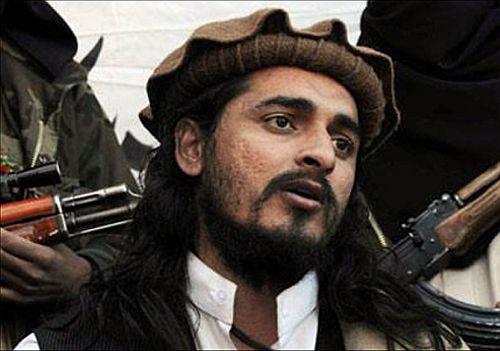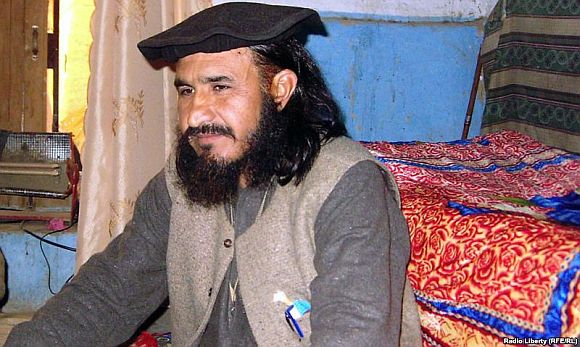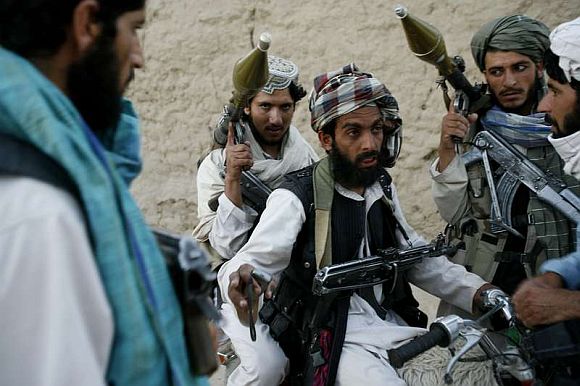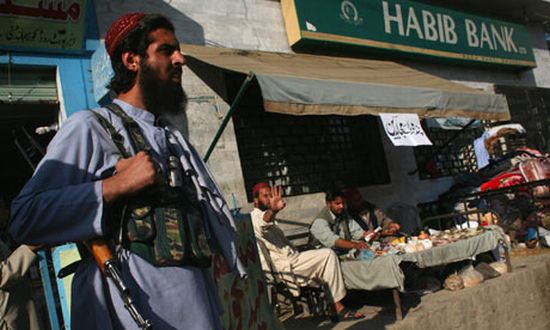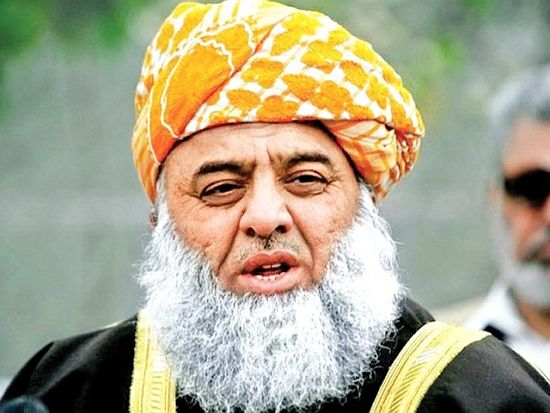 | « Back to article | Print this article |
Why Taliban will NEVER talk peace with Pakistan
Taliban chief Hakimullah Mehsud's shift to the hardline Salafi ideology has derailed the peace process with Pakistan, rediff.com's Tahir Ali reports
Despite repeated attempts by the Pakistan government to bring the warring Tehrik-e-Taliban Pakistan to the negotiating table, the infiltration of Salafi ideology of Al Qaeda into the ranks of the Taliban has kept Hakimullah Mehsud's men away from any peace deal.
The TTP has termed it worthless to enter into any peace deal with the government and has vowed to fight until the establishment of a complete Islamic State.
Hakimullah took over the reins of the TTP following the death of Baitullah Mehsud in a US drone strike in August 2009.
Baitullah had formed the TTP after bringing some 40-odd militants groups under one roof in late 2007. In contrast, Hakimullah emerged as an aggressive and ruthless commander who upped attacks on Pakistani security forces and dispatched men across the country to carry out terror missions.
Click on NEXT to read further...
Why Taliban will NEVER talk peace with Pakistan
Salafi ideology is known for its rigid Islamic interpretations. Over the period of time Hakimullah came closer to the Al Qaeda leadership and has now, according to Taliban sources, totally converted to the Salafi ideology.
He now believes in non-stop 'jihad' on both sides of the border, and has turned down a number of negotiation offers.
Early this March, Hakimullah sacked his deputy, Maulvi Faqir Muhammad from his position when the second round of talks with the government started. Faqir, who is reportedly based in the Kunar province of Afghanistan, had earlier disclosed his efforts to talk with the government of Pakistan to help restore peace in the tribal areas, especially the Bajuar Agency.
Hailing from Bajuar agency, Faqir was made deputy chief of the TTP at a time when Baitullah formed the organisation.
Click on NEXT to read further...
Why Taliban will NEVER talk peace with Pakistan
Faqir claimed that the government had already released 145 Taliban prisoners from various jails across Pakistan as a goodwill gesture, but it did not impress Hakimullah.
According to Taliban sources, Faqir started negotiations with the government without consulting Hakimullah and resultantly faced the music.
To turn down reports of any negotiation between the government and the TTP, violence intensified in the north western Pakistan and Peshawar witnessed a number of bomb blasts and suicide attacks.
Apart from Peshawar, dozens of security personnel and militants have been butchered in Kurram, Orakzai, Khyber and South Waziristan tribal regions during last four months.
In Kurram agency, around 90 security personnel have been recently killed.
Click on NEXT to read further...
Why Taliban will NEVER talk peace with Pakistan
A close aide of Hakimullah told rediff.com that the TTP would never enter into any peace talks with the government, as he is under the influence of Salafi ideology which wants non-stop jihad in the region for establishment of a Islamic Shariah.
"Hakimullah is in no mood to have a patch up with the Pakistani government; he wants to continue the struggle until the Taliban's demands are fulfilled. The demands include an end to drone strikes, military operations, release of all Taliban currently lodged in different jails and the imposition of Islamic rules," the source said.
A tribal elder from South Waziristan, who was involved in the mediation process between the government and the TTP, told rediff.com, "We made number of attempts to bring the two sides to table for talks but in vain; actually Hakimullah is very rigid; he would never enter any peace deal."
The main reason of Hakimullah's opposition to peace talks is the difference of ideologies within the Taliban.
He himself represents the Salafi ideology while a majority of the Waziristan-based TTP commanders, including Waliur Rehman Mehsud who is the second most powerful figure after Hakimullah, follow the Deobandi school of thought.
Click on NEXT to read further...
Why Taliban will NEVER talk peace with Pakistan
At the moment, the TTP commanders with Salafi ideology are strong as they enjoy the backing of Arab militants in the region. Some powerful commanders from the Punjabi Taliban and Jandullah group (anti-Shiite) have been also converted to Salafi ideology and now they are backing Hakimullah in all of his decisions.
Maulana Fazlur Rehman, the head of Pakistan's largest religio-political party Jamiat Ulema e Islam (JUI-F), had helped the government in negotiating with the Taliban.
Today, his life is under threat.
"Maulana Fazlur Rehman is one of our prime targets; he is very close to secular forces of the country. He even supported former President Pervez Musharraf in the notorious military operation of Lal Masjid (in 2007). He would be targeted, especially when launches his upcoming election campaign in Khyber Pakhtunkhwa," Jandullah Group spokesperson Ahmad Marwat told rediff.com.
Leading commanders do not want to sign any peace treaty with the Pakistani government unless there is no imposition of Islamic Shariah.
Click on NEXT to go further...
